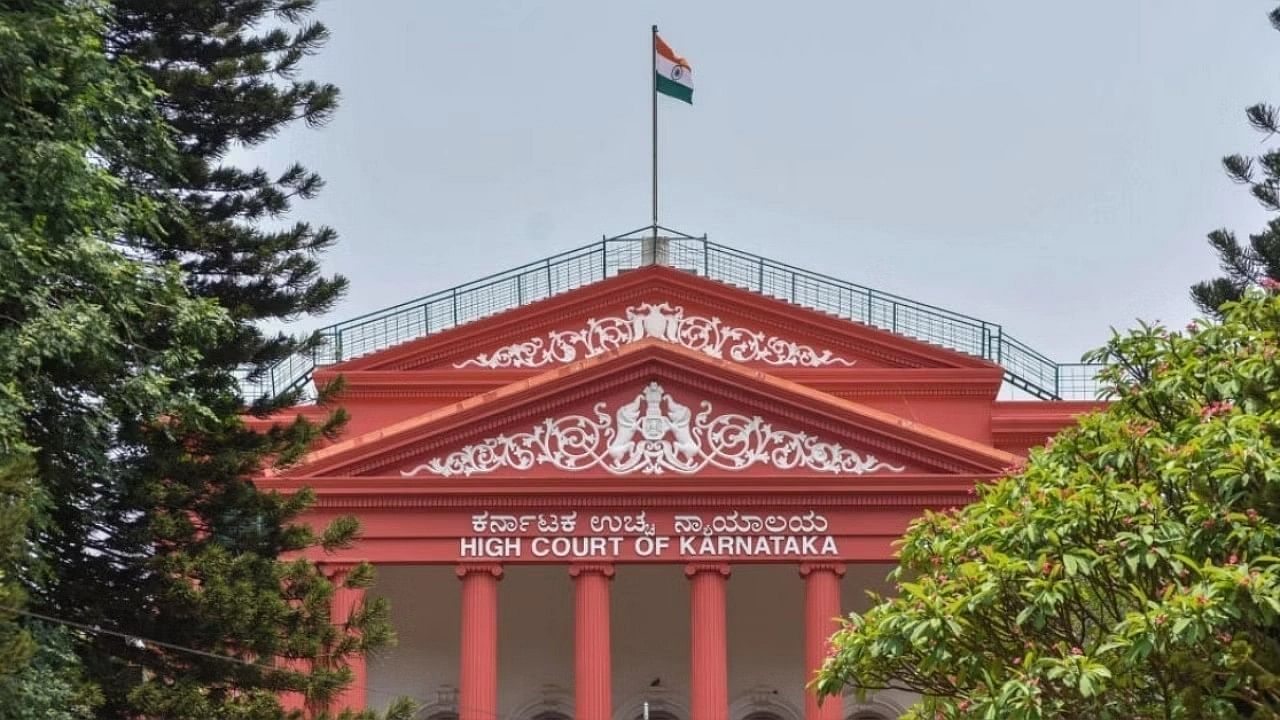
The Karnataka High Court.
Credit: DH File Photo
The high court has quashed the case registered by the Karnataka State Pollution Control Board (KSPCB) against BJP MLA Basanagouda Patil Yatnal-led Siddhasiri Souharda Sahakari Niyamit.
The court allowed the petition by reserving the liberty to the KSPCB to proceed in accordance with law against the industry, if warranted.
The company, represented by its director Ramanagouda Patil (Yatnal’s son) and general manager Shivakumar Patil, challenged the proceedings in a private complaint filed by the KSPCB.
The proceeding was for offences under the Water (Prevention and Control of Pollution) Act, 1974, based on a report by the environmental officer that the company was discharging untreated trade effluent into Mullamari river and also into the operation of ethanol production without proper disposal of spent water. The case was under sections 43, 44 and 47 of the Water Act.
It was contended that a previous division bench order had stayed further proceedings pursuant to a show-cause notice. The division bench had quashed the proceedings observing that the petitioners were not heard before the closure order was passed against them.
It was also submitted that Section 49 of the Water Act mandates that no court shall take cognisance if certain aspects are not complied with, including the issuance of a 60-day notice. In the present case, the complaint was registered on February 2, 2024, and cognisance was taken on February 3, 2024, which was less than 60 days from the issuance of the show cause notice on January 11, 2024.
“..the learned Magistrate ought to have noticed the fact whether a show-cause notice was issued to the accused and 60 days have lapsed after issuance of show-cause notice and only on noticing the said fact, the concerned court would be empowered to take cognizance of the offence, as Section 49 of the Act begins with a non-obstante clause that no court shall take cognizance of any offence under the Act except when a person against whom cognizance is sought to be taken has been given 60 days notice in a manner prescribed and the notice should bear observation that the intention of the one who issues notice is to register a complaint,” Justice M Nagaprasanna said.